The “Uncommitted” Movement Keeps Getting Stronger
The campaign is racking up votes—and delegates—across the country. It’s now the biggest challenger to Joe Biden in the Democratic primary.
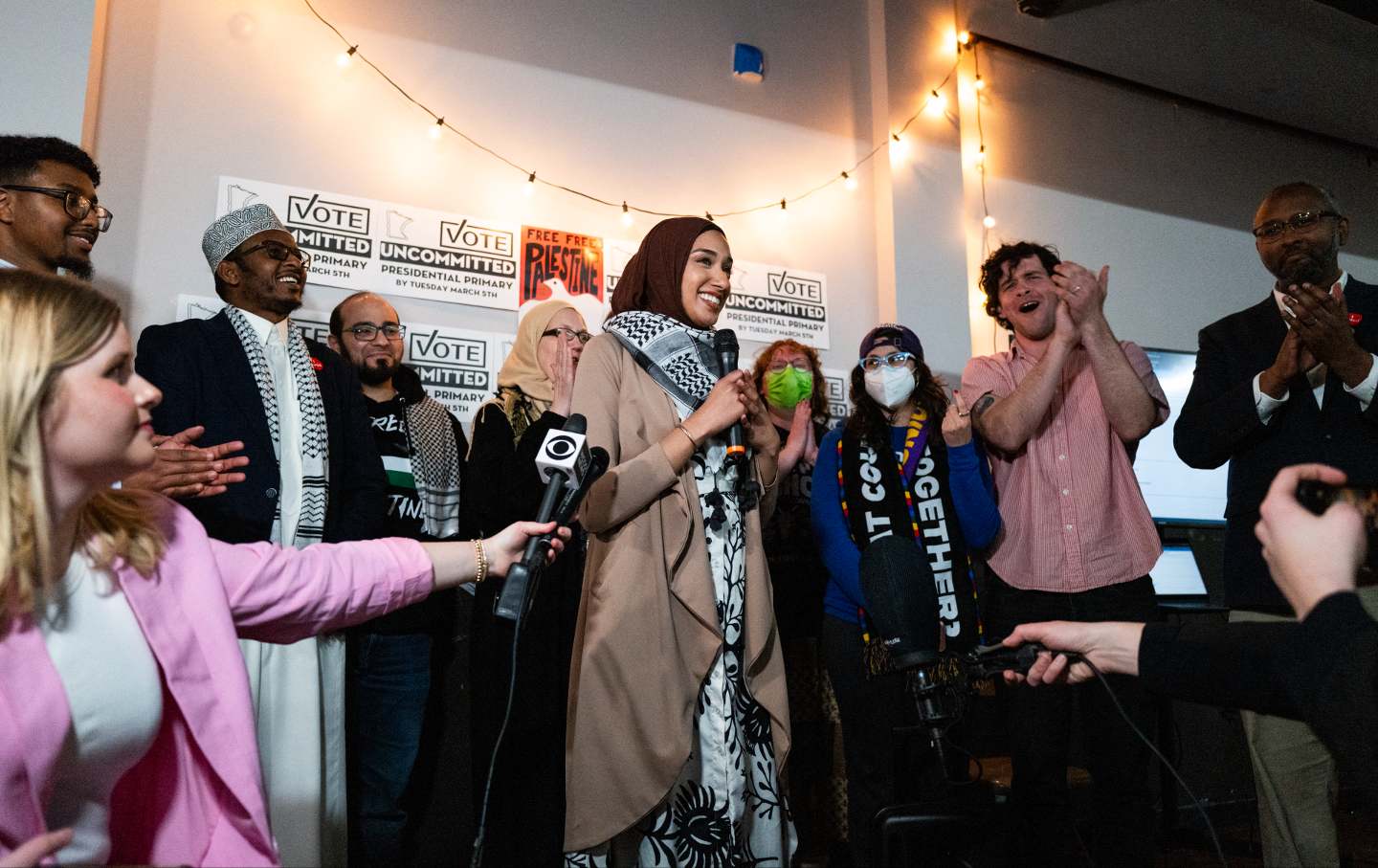
Asma Mohammed (C), an activist with Uncommitted Minnesota, addresses media during a watch party during the presidential primary in Minneapolis, Minn., on Super Tuesday, March 5, 2024.
(Stephen Maturen / AFP via Getty Images)Joe Biden’s strongest challenger in the race for the 2024 Democratic presidential nomination has emerged. But this challenger isn’t a candidate. It’s a call to action for an immediate and permanent cease-fire in Gaza, and for restricting US military aid to Israel, and it is known by one word: “uncommitted.”
The campaign to mark the “uncommitted” box on Democratic primary ballots in order to send a message to Biden about Gaza began barely a month ago in Michigan. But it has kept gaining momentum ever since. “Uncommitted” or its equivalent has now won more than 370,000 votes in primaries and caucuses nationwide, picking up at least 20 delegates to this summer’s Democratic National Convention. And those numbers will rise, perhaps significantly, in the weeks to come.
That’s a significant signal to the president, who gave unwavering support to Israeli Prime Minister Benjamin Netanyahu after the October 7 Hamas attack on Israel, and continued to do so even as the civilian death toll mounted from Israel’s military assault on Gaza. Now that over 30,000 Palestinians have been killed—more than half of them women and children—Biden is speaking more frequently (including during his State of the Union address on Thursday) about getting humanitarian aid to Gaza and trying to negotiate a temporary cease-fire. But that’s seen as an insufficient response to what supporters of the burgeoning “uncommitted” movement identify as nothing less than genocide.
So the “uncommitted” vote continues to grow.
“That is a powerful way to send the administration a message,” Christian Peterson, a University of Minnesota law student, said of “uncommitted” ballots cast in Minnesota and other primary and caucus states in recent days. “Biden needs to stop sending military aid to Israel.”
Abdullah Hammoud, the mayor of Dearborn, Mich., which on February 27 gave a majority of its votes to the “uncommitted” option on that state’s primary ballot, observed as “uncommitted” vote totals mounted that “the pro-peace, pro-justice, pro-democracy movement is growing and making waves.”
Hammoud is right.
It was big news when the “Listen to Michigan” movement’s late-starting and minimally funded “uncommitted” campaign won more than 100,000 votes, 13 percent of the overall total, and two delegates, on February 27. But, since then, state-based “uncommitted” campaigns have gone from strength to strength.
In Minnesota’s March 5 primary, a hastily organized “uncommitted” campaign won 19 percent of the vote and 11 delegates. In the vote-rich Twin Cities metropolitan area, which is the electoral engine for Minnesota Democrats, “uncommitted” took roughly 25 percent of the vote, and in the congressional district of US Representative Ilhan Omar, a Minneapolis Democrat who was an initial cosponsor of the House cease-fire resolution, the “uncommitted” total surpassed 30 percent. In several legislative districts whose representatives, such as state Representative Hodan Hassan (D-Minneapolis) urged votes to send Biden a message about Gaza, “uncommitted” actually won.
Minnesota has a large Somali American immigrant population, as well as a broader Muslim community, concentrated in the Twin Cities. But “uncommitted” also won around 20 percent in the northeast Minnesota city of Duluth. “The purpose of the Uncommitted Minnesota campaign was to send a clear message to the Biden administration that we need a change in US policy toward Israel and Gaza,” said Joel Sipress, the Democratic-Farmer-Labor Party chair in Minnesota’s 8th State Senate district, which takes in Duluth. Sipress, who urged primary voters to mark the “uncommitted” box on their ballots, said, “I think a strong message was sent.”
Hawaii’s March 6 caucuses produced an even higher “uncommitted” vote—29 percent—and seven more uninstructed delegates.
North Carolina gave “uncommitted” 12.7 percent on Super Tuesday, and the option won over 20 percent in at least a half dozen counties. In Robeson County, where 38 percent of the population is Native American, 22 percent is Black and 10 percent is Hispanic, the “uncommitted” total was 37 percent.
“Uncommitted” is no threat to Biden’s overall grip on the party. He was still the big winner on Super Tuesday, and he’s expected to secure enough delegates by the end of this month to clinch the Democratic nomination—officially setting up his rematch with Republican Donald Trump. But Michigan, Minnesota, and North Carolina will all be tightly contested states this fall. And the president cannot afford to lose the votes of Democrats who are outraged with his approach to Gaza.
Many “uncommitted” primary voters, like Minnesota’s Sipress, say they will organize for Biden in the fall. But Democratic insiders acknowledge fears that an enthusiasm gap will open—particularly among young people, Arab Americans, and others who believe that the president has failed to listen to calls for a policy shift from precisely the Democratic voters who played such a critical role in his 2020 victory over Trump.
Democratic strategist Arshad Hasan told Al Jazeera that the people casting “uncommitted” ballots are precisely the voters Biden will need in November, not merely as voters but also as organizers. “The issue is all of these people comprise the activist class within the Democratic Party,” explained Hasan. “Those activists are needed to mobilize all of their networks and their communities.” That’s especially true in November battleground states, such as Georgia, where “Listen to Georgia” activists are busily phone banking in anticipation of that state’s primary on Tuesday.
On the same day, voters in Washington state could send one of the loudest “uncommitted” messages yet in the primary season. The “Uncommitted WA” campaign has won endorsements from elected officials, labor unions, Seattle’s widely circulated alternative weekly newspaperThe Stranger, Democratic Socialists of America, Our Revolution, Progressive Democrats of America, and Jewish Voice for Peace Action.
Popular
“swipe left below to view more authors”Swipe →Inspired by the Listen to Michigan movement, Rami Al-Kabra, a Muslim-American immigrant who serves as a City Council member in the Seattle-area community of Bothell, says the “Uncommitted WA” campaign “is an anti-war effort” that is determined to get a message to Biden via the ballot box. “It was not our first choice,” he explains, “but we have to let President Biden know that our votes are not to be taken for granted.”
Similar sentiments are being voiced in later primaries, such as the one in Wisconsin, the ultimate battleground state, where the newly organized Listen to Wisconsin movement is saying, “If they won’t listen to our calls, emails, or letters—they should listen to our votes.”
Wisconsin, which holds its primary on April 2, is a state with a history of using Democratic presidential primaries to send messages. And the prospect that it could send a message regarding Gaza is genuine. Just this week, a hearing on a Milwaukee County Board resolution calling for a permanent cease-fire in Gaza drew a packed crowd. State Representative Ryan Clancy, a Milwaukee Democrat who also serves on the county board, summed up the mood when he said, “The massive and overwhelming public support for a cease-fire and against genocide will not be silenced.”
We cannot back down
We now confront a second Trump presidency.
There’s not a moment to lose. We must harness our fears, our grief, and yes, our anger, to resist the dangerous policies Donald Trump will unleash on our country. We rededicate ourselves to our role as journalists and writers of principle and conscience.
Today, we also steel ourselves for the fight ahead. It will demand a fearless spirit, an informed mind, wise analysis, and humane resistance. We face the enactment of Project 2025, a far-right supreme court, political authoritarianism, increasing inequality and record homelessness, a looming climate crisis, and conflicts abroad. The Nation will expose and propose, nurture investigative reporting, and stand together as a community to keep hope and possibility alive. The Nation’s work will continue—as it has in good and not-so-good times—to develop alternative ideas and visions, to deepen our mission of truth-telling and deep reporting, and to further solidarity in a nation divided.
Armed with a remarkable 160 years of bold, independent journalism, our mandate today remains the same as when abolitionists first founded The Nation—to uphold the principles of democracy and freedom, serve as a beacon through the darkest days of resistance, and to envision and struggle for a brighter future.
The day is dark, the forces arrayed are tenacious, but as the late Nation editorial board member Toni Morrison wrote “No! This is precisely the time when artists go to work. There is no time for despair, no place for self-pity, no need for silence, no room for fear. We speak, we write, we do language. That is how civilizations heal.”
I urge you to stand with The Nation and donate today.
Onwards,
Katrina vanden Heuvel
Editorial Director and Publisher, The Nation
More from The Nation
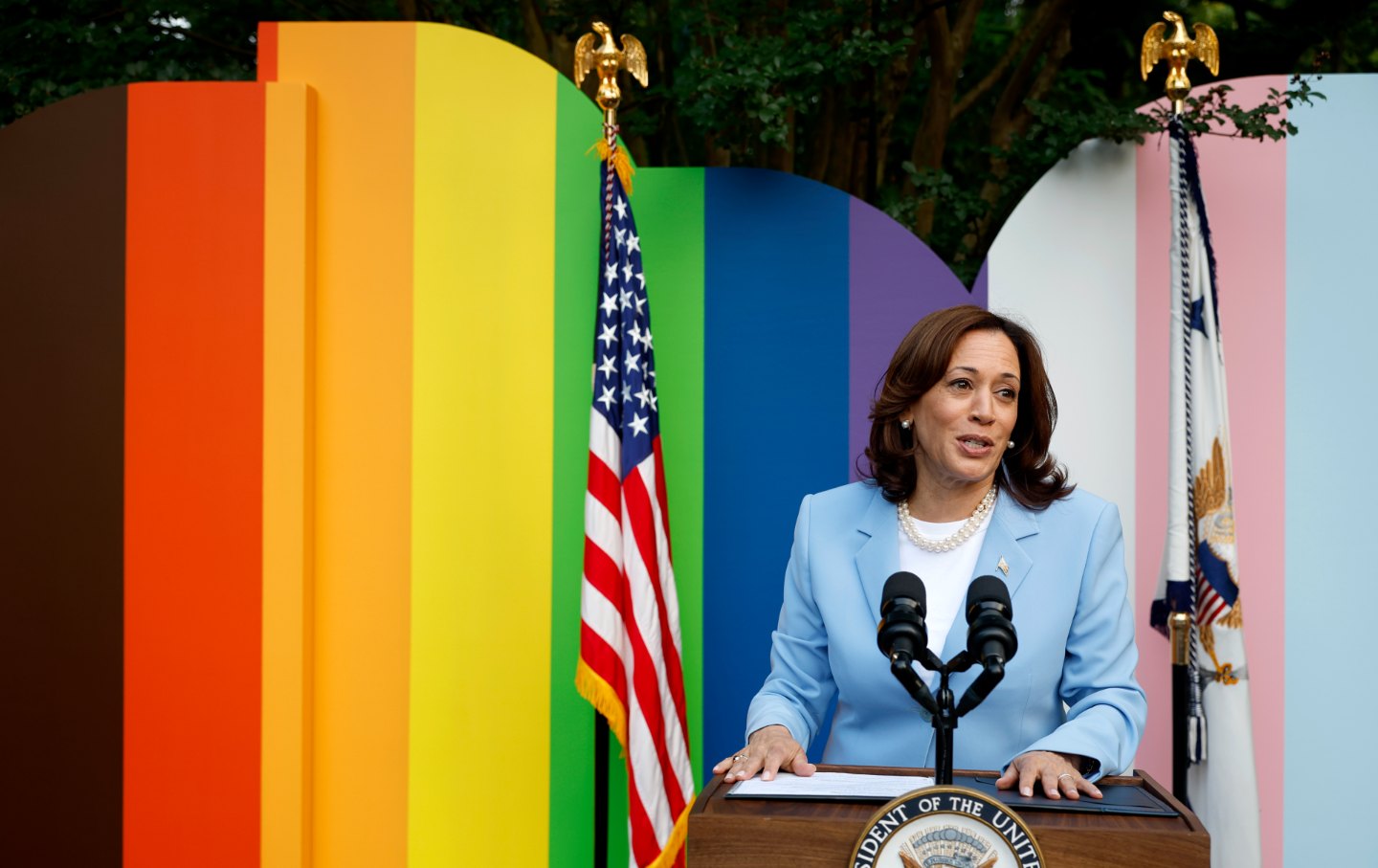
Trans People Shouldn’t Be Scapegoated for Democrats’ Failures Trans People Shouldn’t Be Scapegoated for Democrats’ Failures
Politicians and pundits are stoking a backlash to trans rights in the wake of the election. They’re playing a dangerous game.
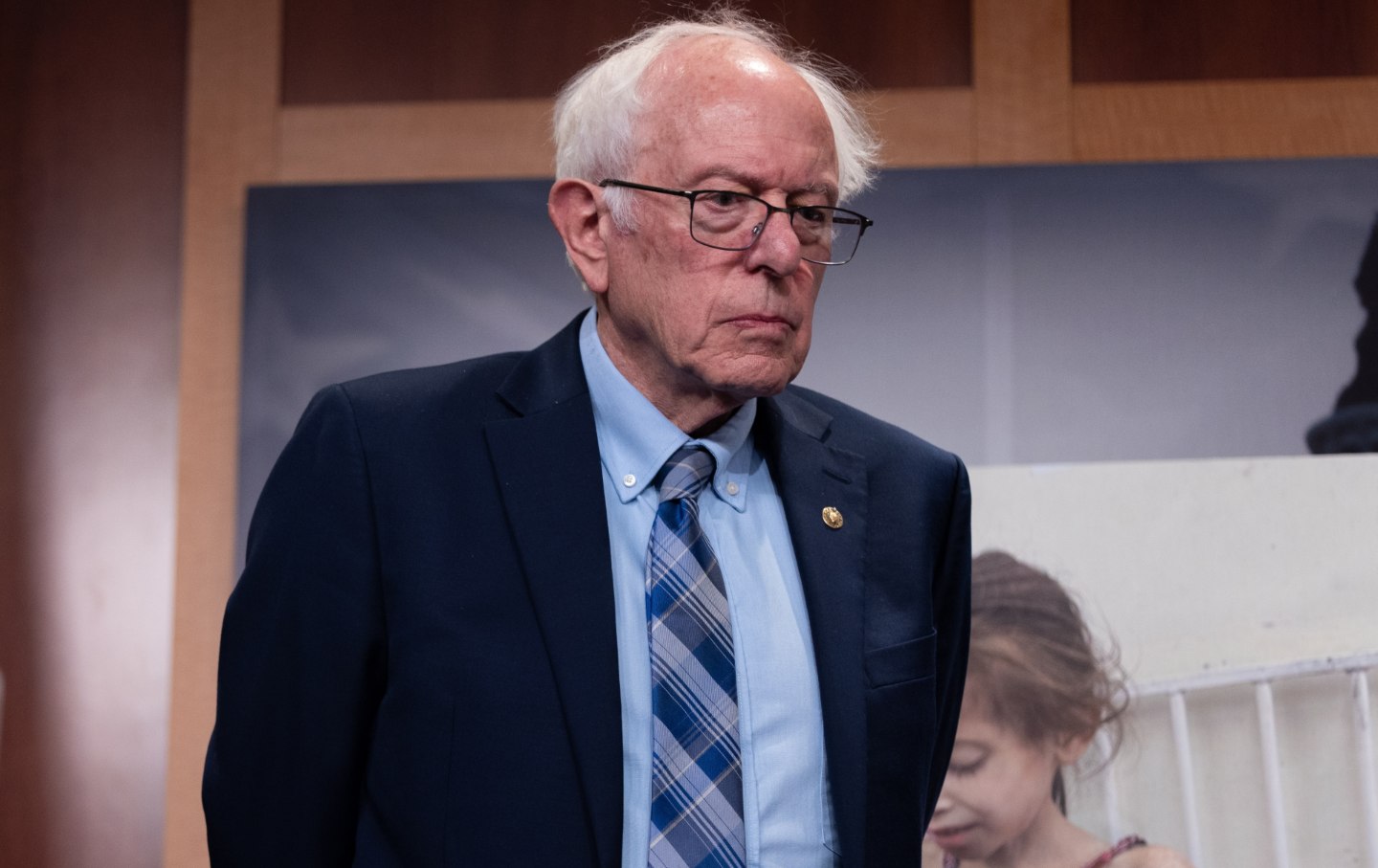
Bernie Sanders Is Leading a Bold New Effort to Block Arms Sales to Israel Bernie Sanders Is Leading a Bold New Effort to Block Arms Sales to Israel
The senator has more allies than ever in his fight to hold Israel accountable and save lives in Gaza.

Will “Serious” Republicans Block Any of Trump’s Freak-Show Cabinet Picks? Will “Serious” Republicans Block Any of Trump’s Freak-Show Cabinet Picks?
Will they stand up to even the scariest of these nominees? I’m not optimistic.

Harris’s Gaza Policy Was a Disaster on Every Level Harris’s Gaza Policy Was a Disaster on Every Level
Palestine may not have swung the election one way or another. But Democrats unquestionably paid a high price for their refusal to hold Israel accountable.
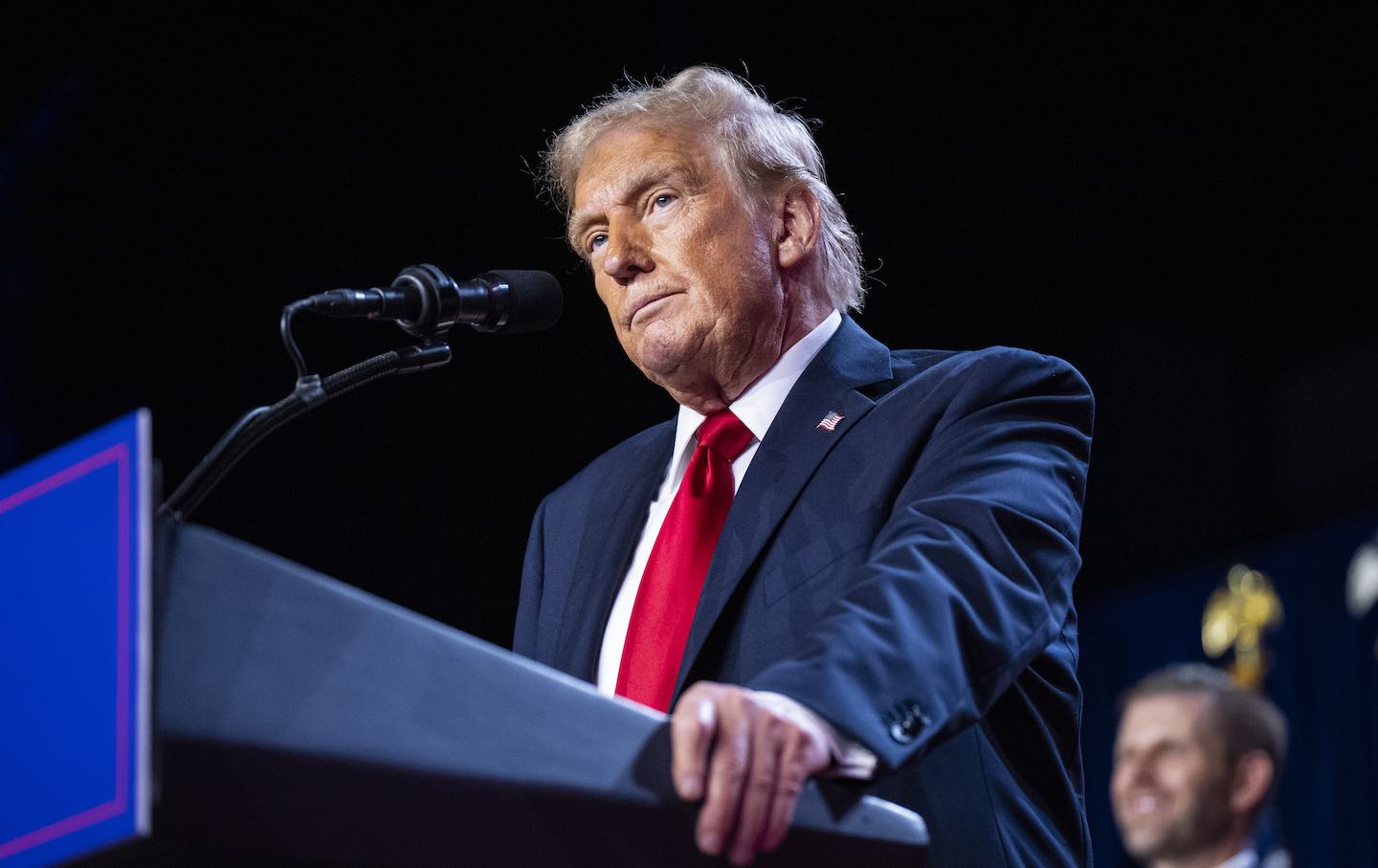
Donald Trump Has NOT Won a Majority of the Votes Cast for President Donald Trump Has NOT Won a Majority of the Votes Cast for President
Donald Trump’s popular vote total has fallen below 50 percent, and his margin over Kamala Harris has narrowed considerably as all the votes are counted.
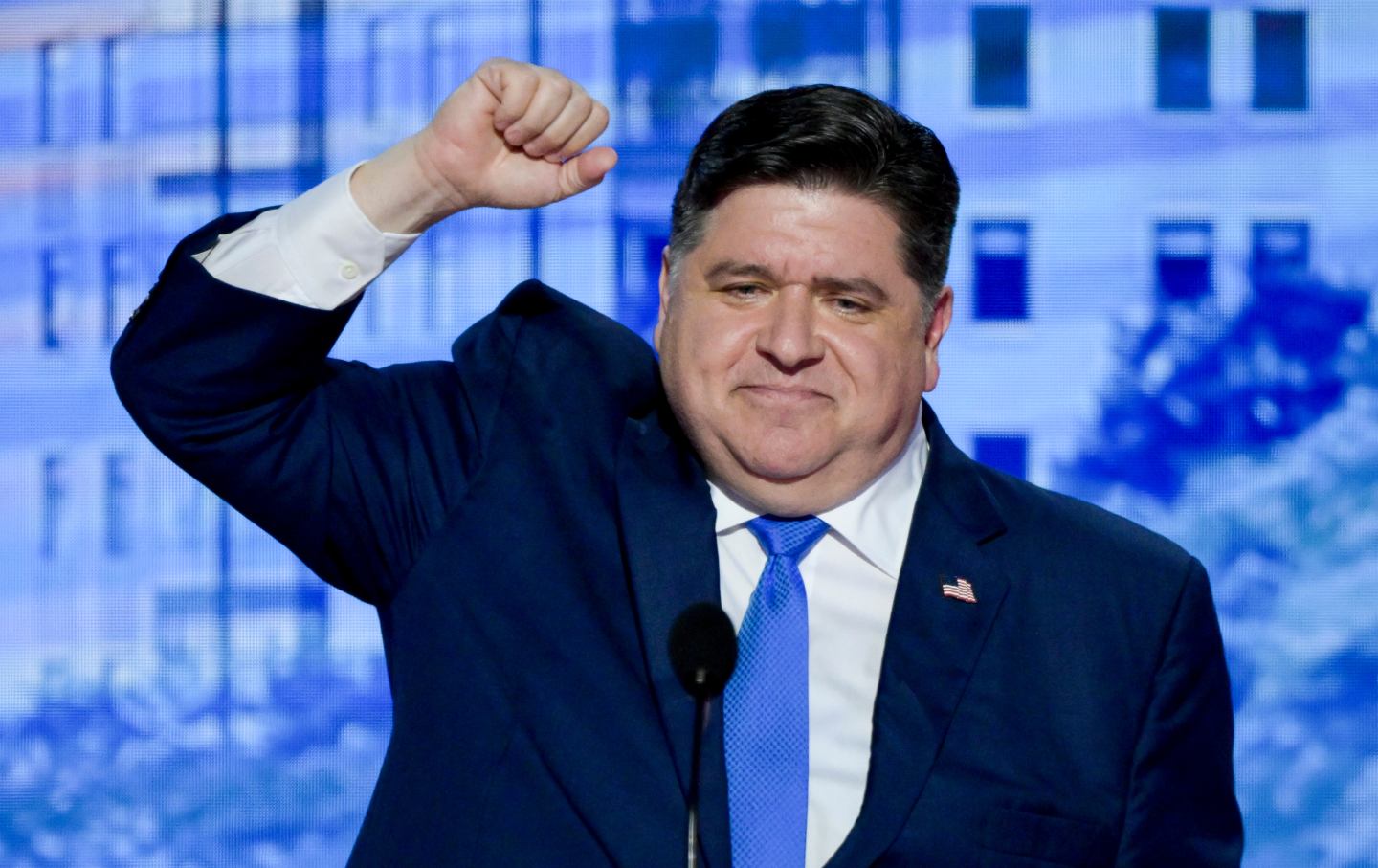
When Does Power Concede? Thwarting MAGA Will Take More Than Protest and Symbolic Resistance. When Does Power Concede? Thwarting MAGA Will Take More Than Protest and Symbolic Resistance.
If we want to deploy actual power to block Trump’s vicious agenda once he takes control of the federal government, we will have to look to the states.


